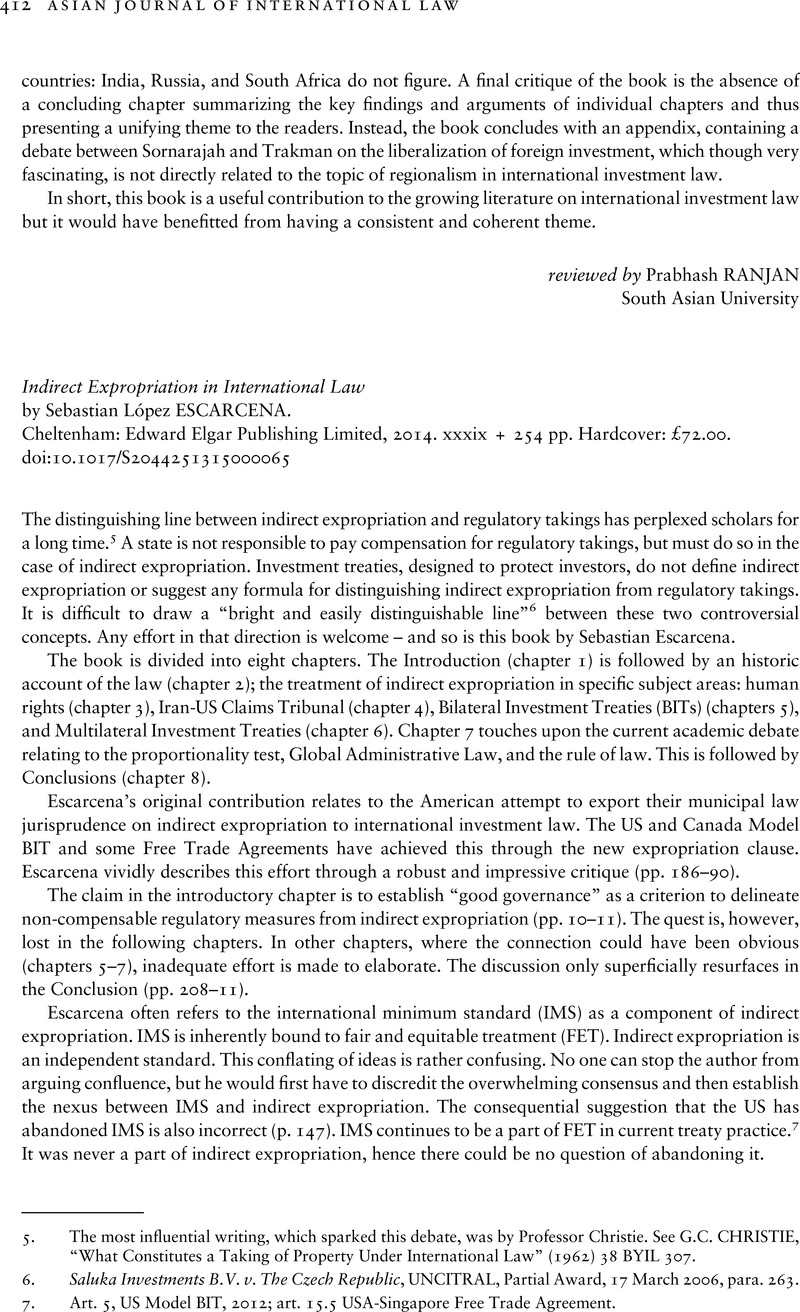No CrossRef data available.
Published online by Cambridge University Press: 30 June 2015

5. The most influential writing, which sparked this debate, was by Professor Christie. See CHRISTIE, G.C., “What Constitutes a Taking of Property Under International Law” (1962) 38 BYIL 307Google Scholar.
6. Saluka Investments B.V. v. The Czech Republic, UNCITRAL, Partial Award, 17 March 2006, para. 263.
7. Art. 5, US Model BIT, 2012; art. 15.5 USA-Singapore Free Trade Agreement.
8. Pope & Talbot Inc. v The Government of Canada, Interim Award, NAFTA, 26 June 2000, para. 104.
9. ALDRICH, George H., The Jurisprudence of the Iran-United States Claims Tribunal (New York: Clarendon Press Oxford, 1996), p. 178CrossRefGoogle Scholar.